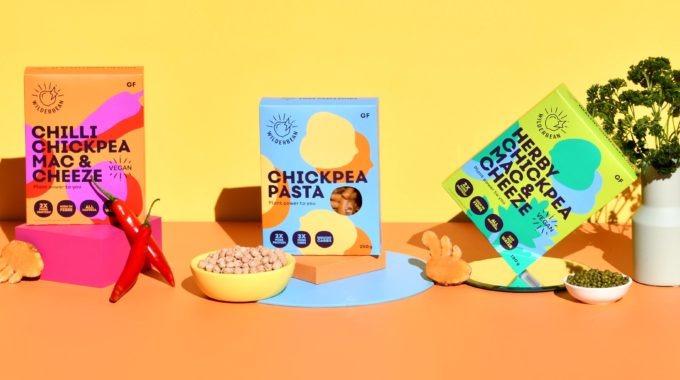Aussie entrepreneurs hit food pay dirt
Australia is not just a land of plenty, it’s a land of great food ideas. Any country that can invent lamingtons, Vegemite and Tim Tams is pretty legendary by our book. But great Aussie food ideas are not just a thing of the past – there are legions of foodie entrepreneurs out there right now, brainstorming new concoctions in their home kitchens. This week we take a look at three Melbourne food businesses that have gone from as grassroots as you can get to becoming national success stories. There’s some wicked good vegan cheese, a crazy healthy pasta made from Aussie legumes, and we’ve even found one guy who loves peanut butter even more than we do. Now that is an accomplishment in itself.
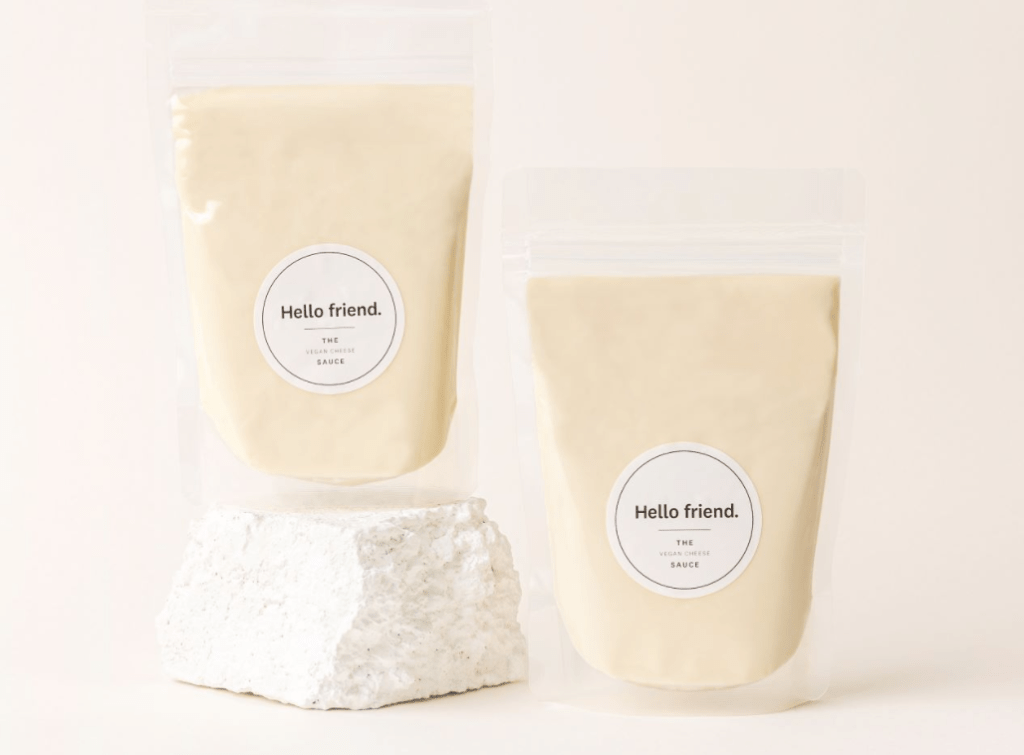
Hello Friend Foods
Bree Gaudette was a vegan who was unhappy with the limited and tasteless vegan cheese options available at her local supermarket. So in 2015 she decided to try making her own, and after some experimenting, she created something pretty special. But while the hospitality veteran knew her way around a kitchen (and a wedge of vegan cheese), she knew very little about business, which meant she wasn’t sure if and how she could bring her new product to market. Then one day she caught an Uber.
Her Uber driver was a man named Matthew Ronalds. The two just happened to hit it off, and soon became good friends. When Gaudette asked Ronalds if he wanted to start a vegan cheese business with her, as you do, he quickly agreed.
One important aspect of creating a business is choosing the right name. But what to call a vegan cheese company when “cheeze” and its variants were already taken? The solution came to the pair when they were out walking one day.
“There was a dog on a lead up ahead, and as we approached it, I said ‘Hello, friend’,” Gaudette recalls. “Matthew looked at me and said, ‘That’s it! That’s the name!’”
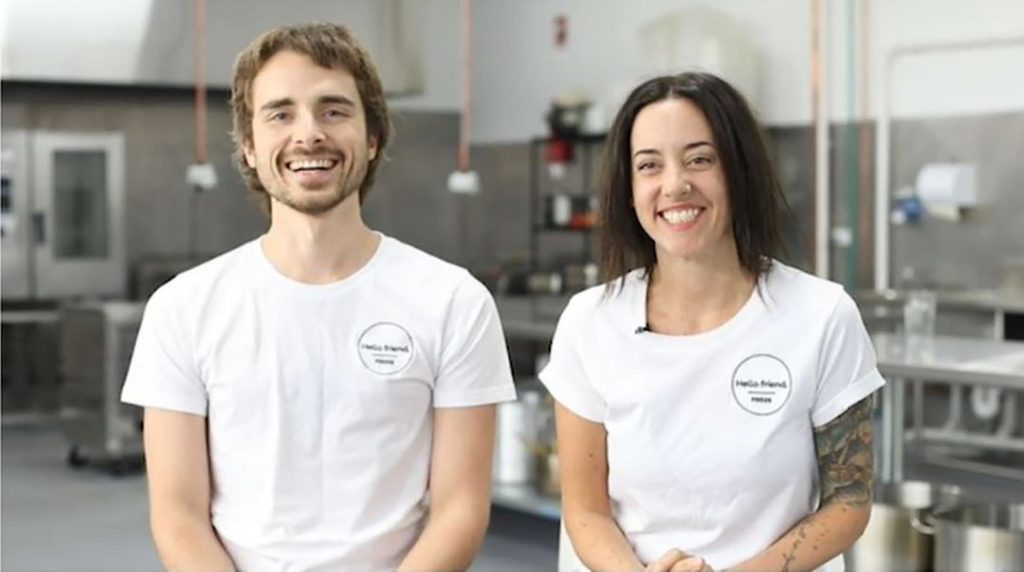
Once they had a name, the pair started working on more cheeses, and studied the complexities of starches, emulsions and proteins. When they trialled their flagship product – a vegan mozzarella – they got a great response, and so they went ahead with the next phase: a vegan haloumi, an Australian first.
During the first year, the two used the kitchen in a local cafe after hours to hand-make their cheeses, sometimes working from 4pm until 3am the next morning. But by 2019, the business moved into its own commercial kitchen, began shipping interstate, hired employees and took on a distributor for Sydney and surrounds.
Hello Friend Foods now supplies retailers, cafes and caterers with premium vegan cheese, also selling directly to customers from their online shop. Every product they make is handmade, free from lactose and palm oil. Unlike some other vegan cheeses, Hello Friend Foods doesn’t use any gluten or nuts in its products.
You can find out more at hellofriendfoods.com
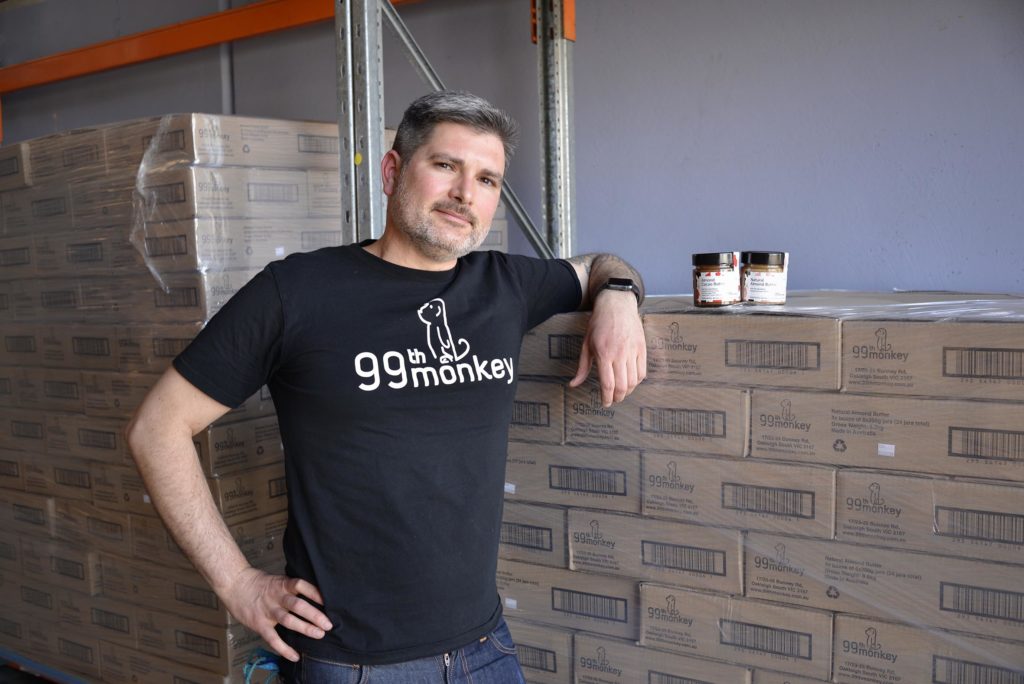
99th Monkey
When former journalist Nick Sheridan was living in London back in 2012, he decided to train for his first marathon. All runners know how important the right fuel is, and during his training, Sheridan became “obsessed” with peanut butter. When he returned to Melbourne in 2013, he decided to turn this nut butter obsession into a business – 99th Monkey.
Sheridan says his aim was to create food that not only tastes delicious but food that is good for your health and kind to our planet. He first began selling his product at farmers’ markets, then moved into local stores and began selling online. By the end of 2017, 99th Monkey was in around 800 independent retailers across Australia.
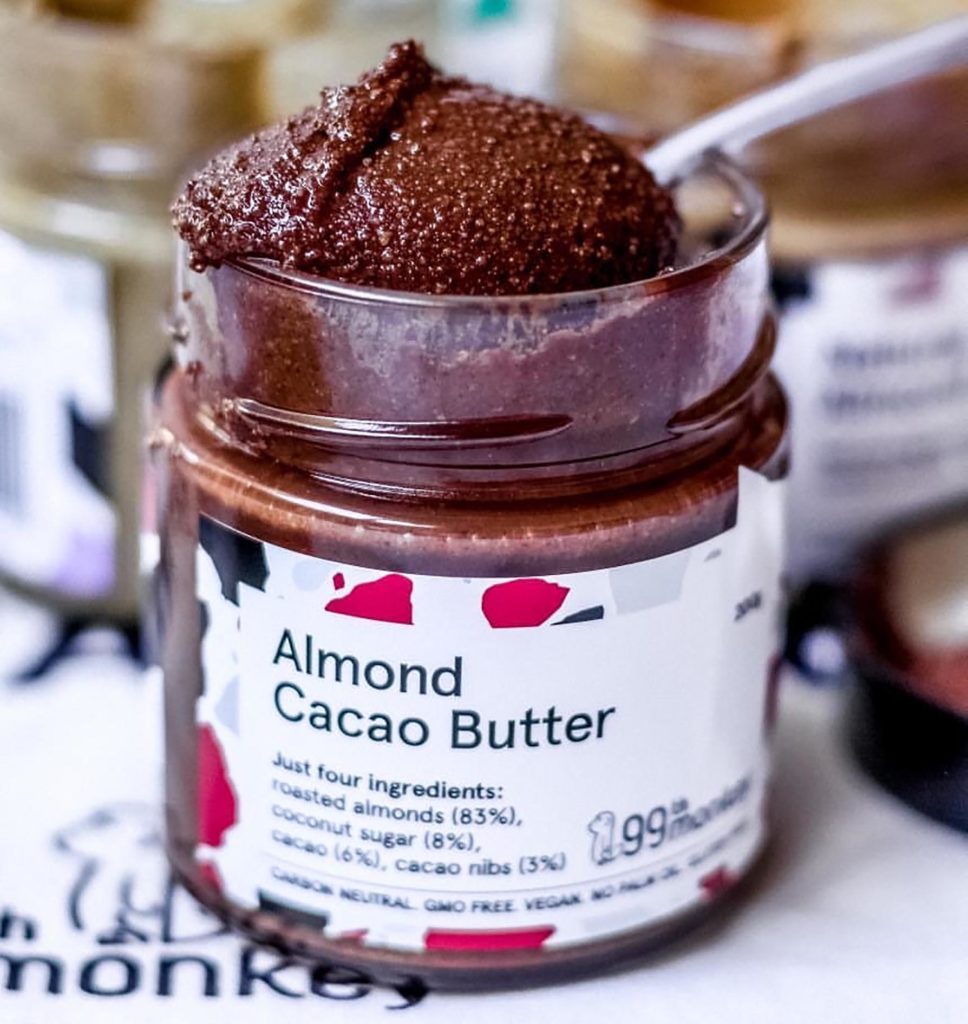
In 2018, 99th Monkey became one of five Australian businesses that were selected to take part in the Chobani Food Incubator program, which supports small start-ups that are trying to bring better food to more people.
“The program helped me expand my vision for the business and gave me the contacts and confidence to take it the next level,” Sheridan says. “2018 was also the year that I finally went all in on the business, leaving my job as editor to focus on 99th Monkey full time.”
Sheridan’s bold move paid off, and by the end of 2018, 99th Monkey was stocked in Coles Local stores. By 2019, the business had three products stocked in 200 Coles stores in Victoria. This past year, 99th Monkey has signed a million-dollar deal with Coles, and its products will be stocked in 650 Coles stores nationally.
Find out more, shop online and check out some delicious recipes at 99th Monkey
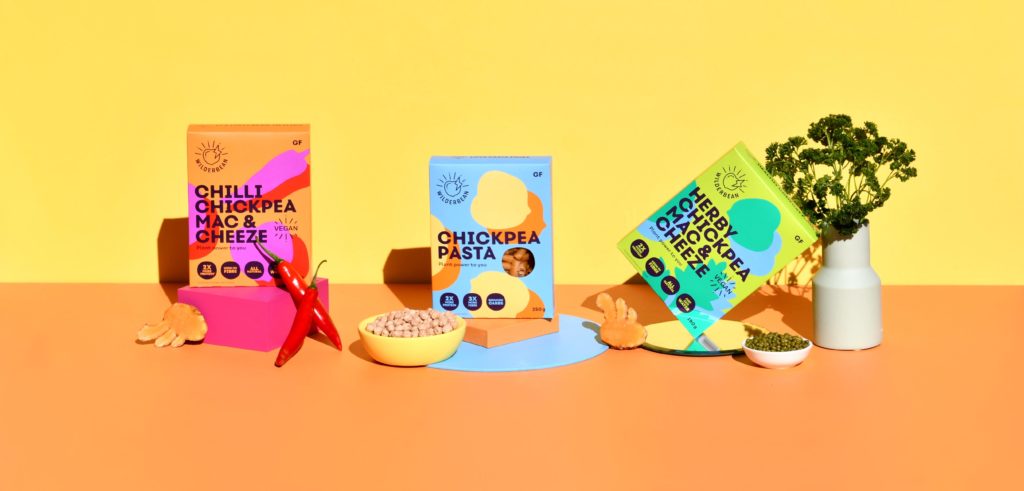
Wilderbean
Wilderbean founders and sisters Ingrid and Sally Stead had both been living plant-based lifestyles for 10 years, and discovered legumes when they were looking for nutritious high-protein plant-based foods to add to their diet. But the two were “underwhelmed” by many existing bean-based products, many of which came in a can or were uncooked and dried.
The sisters began making their own chickpea pasta at home, and the results showed promise. So they took their idea to some local food technologists to refine their recipe and bought some equipment that would allow them to manufacture chickpea pasta commercially. The business has now released two Australian firsts – a 100% Australian grown chickpea pasta and a high protein, all-natural, vegan chickpea “mac & cheeze”.
“In our view, legumes are the often-overlooked heroes of the plant kingdom” Sally says. “They’re not only nutrient dense, tasty and filling, they’re also one of the most resource efficient and sustainable foods on the planet.”
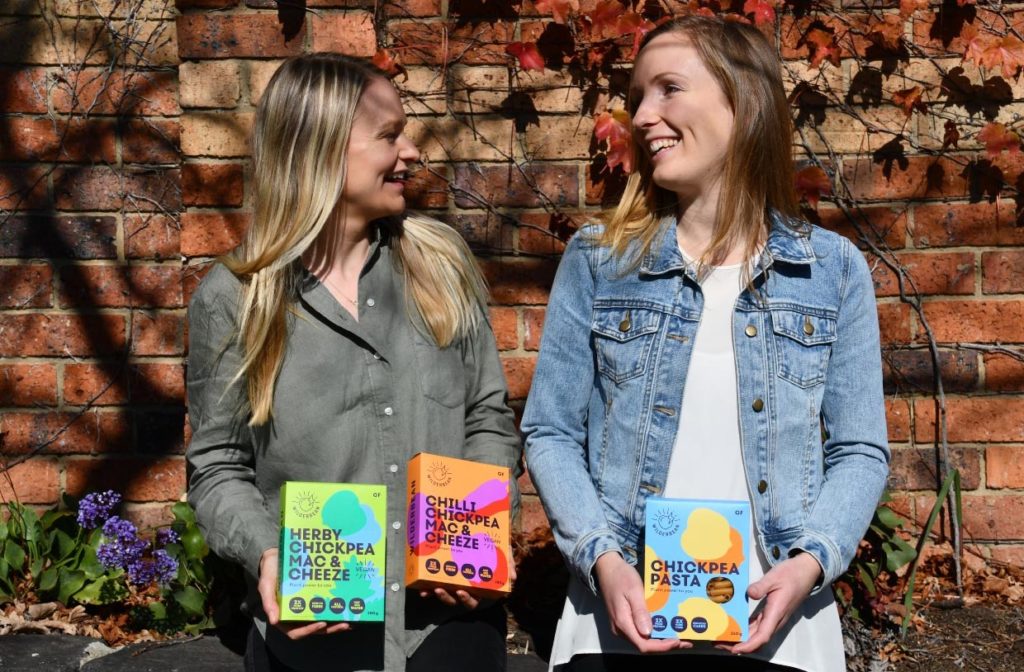
Wilderbean’s chickpea pasta is a healthy addition to any plant-based diet – it’s high in protein and fibre, with more than 30g of plant protein and 11g of fibre per serve, but it’s lower in carbs than traditional wheat pasta. Being made from Australian-grown chickpeas and mung beans and nothing else, the pasta is also a good source of iron, zinc and magnesium. The packaging is also planet-friendly, with a certified home compostable inner liner and 100 percent post-consumer recycled cardboard outer boxes.
“It’s an exciting time to be creating high protein plant-based food, with a recent Roy Morgan report showing 53 percent of Australians are moving towards eating less red meat,” Ingrid says. “We’re empowering people to feel good about improving their health and that of the planet through delicious, chickpea-powered meals that make it easier for our everyday food choices to make a difference.”
Wilderbean has a growing number of stockists in Melbourne, regional Victoria, NSW and Queensland. You can find out more, including where to buy, at wilderbean.com.au


